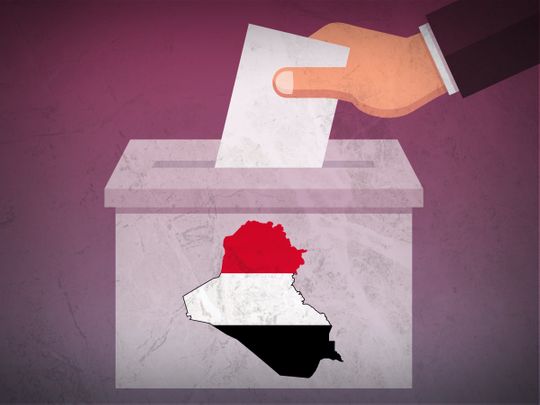
In unsavory political impasse, usually reserved for Lebanon in the Arab world, four months after the general elections, Iraq has yet to form a new government due to in-fighting among its main political parties.
The parliamentary elections, held in October 2021, failed as usual to bring about a majority government, henceforth, it was left to the traditional horse-trading among the main blocks to agree on an acceptable prime minister and the main cabinet portfolios. However, sharp differences among mainly the Shiite parties led to the current deadlock. thus delaying badly needed economic and social reforms, according to the United Nations’ representative in Iraq.
In the newly elected Council of Representatives, the Sadrist Movement, led by Shiite cleric Muqtada Al Sadr, has 73 seats; the Taqadum group, led by Sunni speaker Mohammad Al Halbousi, controls 37; the Kurdistan Democratic Party (KDP) 31 seats, while former prime minister Nouri Al Maliki’s State of Law Shiite bloc has 35 seats. Therefore, it was thought that the Sadrists would lead an easy negotiation to reappoint the outgoing premier, Mustafa Al Kadhimi, to lead the new cabinet. In the post-2003 Iraq, the top three positions are divided as such: the president of the state’s post is reserved for the Kurds, the parliament speaker for the Sunnis and the prime minister for the Shiite.
Therefore, the sharp differences between the two main Shiite blocks, the Sadrists and the State of Law, have led to the current impasse. The Sadrists, weary of Iran’s increasing influence in their country, prefer Al Kadhimi whose short 18 months in power saw Iraq coming closer to Arab countries, forging a tripartite political and economic past with Egypt and Jordan and the establishment of a coordination council with Saudi Arabia while ties with Iran cooled off. State of the Law, meanwhile, prefers a premier that is closer to their main backer, Iran. Tehran tried and failed to mediate between the two blocks.
With the economy, still reeling from years of mismanagement and rife corruption, hit badly by the coronavirus pandemic, more families have been pushed into poverty in the oil rich country. Al Kadhimi’s government, with the help of the UN, had begun a reform programme to address Iraq’s economic failings, enhance governance, and expand social programmes. The delay in forming a new government will hinder those efforts.
“Many Iraqis increasingly wonder whether the national interest is actually front and centre in the ongoing negotiations – rather than access to resources and power, or how the pie of political appointments and ministries will be carved this time around,” a blunt UN envoy to Iraq, Jeanin Hennis-Plasschaert, told the UN Security Council last week.
The Iraqi leaders may resent her not so diplomatic language, but her words in reality reflect what the Iraqi people believe what the current political deadlock is about.








